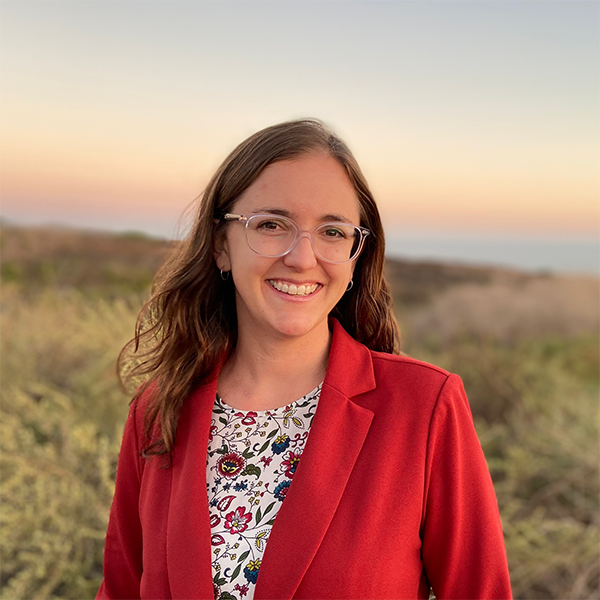Copp Named NIH Director’s New Innovator for Advances in Nanomaterials Research

Oct. 8, 2024 – Stacy Copp, assistant professor of materials science and engineering, has received the 2024 Director’s New Innovator Award from the National Institutes of Health. She is among 40 to earn this recognition, which is given to support innovative biomedical research from early career investigators.
Copp will receive $2.1 million over five years in support of her research to develop a new class of nanomaterials capable of emitting near-infrared light, which can penetrate deep into biological tissues. Fluorescence imaging is a crucial tool for monitoring biomolecular processes at high spatial resolutions and in real time. However, the current technology has limitations for deep tissue imaging because there are few available fluorophores in the near-infrared tissue transparency range (1,000 to 1,700 nm). Those that are available suffer from challenges such as low brightness, large size and toxicity.
Copp’s NIH project seeks to overcome this challenge. She will exploit chemistry-informed machine learning models developed in her lab to enable the creation of DNA-stabilized nanoclusters that emit near-infrared light and can target and label specific tissues in the body. This work will lead to new chemical tools for in vivo labeling and tracking of biomolecules, cells and tissues, including in living organisms. Copp’s research could have wide-ranging applications for biomedical research, including for cancer biology, neuroscience and cardiovascular science.
“I am thrilled for this support from NIH to develop an entirely new kind of light-emitting contrast agent, which could overcome many of the challenges that have hindered deep tissue fluorescence imaging,” said Copp “I have been researching DNA-stabilized nanoclusters for over a decade, during which time their promise for biomedicine has become clear. Now, we hope to make this promise a reality for researchers, clinicians and patients.”
Copp was a Hoffman Distinguished Postdoctoral Fellow at Los Alamos National Laboratory before joining the UCI faculty in 2019. Her lab at the Samueli School of Engineering works to harness DNA and synthetic polymers as programmable templates for nanoscale materials, with an eye toward addressing challenges in biomedical imaging, photonics and energy efficiency. She has recently earned a number of notable accolades including the Chan Zuckerberg Initiative grant, the Department of Energy Early Career Award and the U.S. Army Development Command/Army Research Laboratory Early Career Award.
The NIH Common Fund’s High-Risk, High-Reward Research program supports research proposals that, due to their inherent risk, may struggle in the regular peer-review process despite their transformative potential. Program applicants are encouraged to think beyond traditional bounds and to pursue trailblazing ideas in any area of research relevant to the NIH’s mission to advance knowledge and enhance health.
– Lori Brandt
